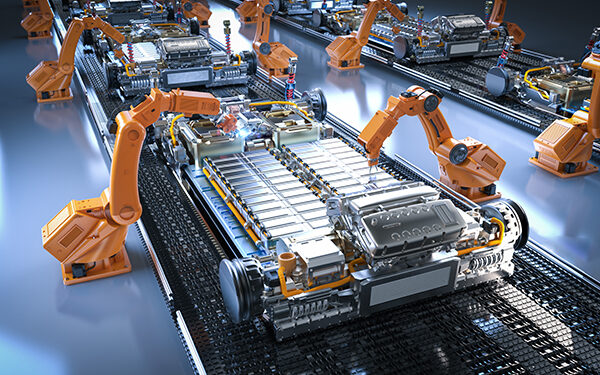

Batteries lie at the heart of the drive for motoring decarbonization, but in essence, it is building on technology that goes back 200 years. The first electric battery was invented in 1800 by Alessandro Volta, the technology has evolved and improved and in 1985 the first Lithium-Ion battery was developed and effectively commercialized in 1991.
Lithium-Ion enabled more energy to be stored in a reduced space and weight whilst offering a longer life for the battery.
How does a battery work?
At the heart of the battery are the cells, these cells consist of a cathode (+), anode (-) electrolyte liquid, and a separator, simply when the Lithium-Ions migrate from (+) to (-) and back again they supply electricity and recharge the battery. These individual cells are then assembled in a module, multiple modules with sensors and a control unit make up a battery pack. The battery packs are then used to power vehicles.
Are batteries sustainable what is the impact of the minerals they use?
Battery manufacturers measure their environmental impact from mineral extraction, and treatment to cell and battery production. The minerals used are predominantly lithium, nickel, cobalt, and manganese, these minerals are not regarded as scarce resources and are available for the large-scale production of electric batteries. There is global scrutiny of the extraction and processing of these minerals so the manufacturers take great how they operate.
Everything from the impact on soil, biodiversity, water, and waste as well as health and safety, labor, and human rights are at the heart of what they do. It is worth noting that 70% of the carbon footprint of a battery cell is in its production and battery manufacturers are looking to create giga-factories close to where vehicle production sites to reduce overall emissions and by using more environmental sources of production energy.
The big question about batteries is range.
Although there are standard measures, miles per kilowatt-hour (miles per kWh) is the electric vehicle equivalent of miles per gallon (mpg), there are lots of factors that influence range, not least outside temperature, type of vehicle, aerodynamics, and age of the cells, although expect at least a 10 years service life for a battery cell. A rule of thumb is the higher the kWh figure the more miles the vehicle will be able to do on a single charge.
Lifecycle of a battery
Battery care is essential, especially in early life, but capacity and power will decrease over time depending on care and use. Each battery pack is expected to retain its charging-discharging capacity for 100,000 to 200,000 miles. Manufacturers are so confident of the battery’s road use that most electric cars come with an extended warranty of eight years or 100,000 miles which is better than combustion engine alternatives.
There are circular approaches to batteries being developed to limit the need to extract natural resources and opportunities for repairers that will develop over time. Battery reconditioning will become viable to be reused in vehicles or for energy storage in homes, some manufacturers have plans to supply batteries for public spaces, for example, Nissan plan to use retired EV batteries to provide backup power to the Amsterdam Arena. When a battery I spent, at the very end of its life the materials will be recycled into the production of new batteries, this will happen in significant volumes as many governments are already legislating to ensure this happens.
What future developments can we expect?
By the end of the decade, the number of lithium-ion batteries will increase significantly, with higher energy densities than current batteries making them lighter and with an increased range. Pricing is set to fall, but this is quite volatile, especially for the minerals required. As the giga-factories ramp up production economies of scale will force prices down.
Lower prices, with government legislation and incentives, will drive significant sales of electric vehicles, more electric cars mean more challenges but also more opportunities for the aftermarket, will everyone be ready?
Batteries are changing the world…are you ready to change too?